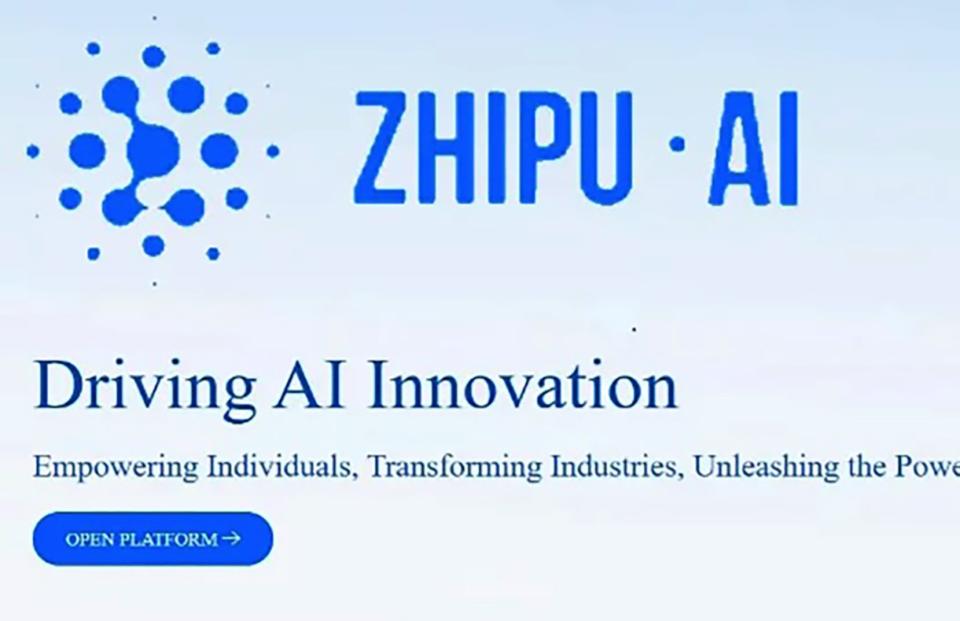Chinese tech executives, including those from Alibaba Group Holding and generative artificial intelligence startup Zhipu AI, discussed how large language models (LLMs) can shape businesses at the annual conference of the Luohan Academy, Alibaba’s open research institute.
At the Luohan Academy’s 2024 annual Digital Economy Conference, Zhang Fan, Chief Operating Officer of Zhipu AI, one of China’s “four artificial intelligence (AI) tigers,” shared how the tech unicorn is helping companies train their own generative AI applications based on application programming interfaces (APIs).
Based on the company’s Model-as-a-Service platform, enterprises in different industries can fine-tune Zhipu AI’s LLM based on their business needs to create different applications. For example, a major stockbroker in China had used this service to create an “AI brain”, which can perform multiple tasks, such as helping customers choose the best stock portfolio and answering questions.
Do you have questions about the biggest topics and trends from around the world? Get the answers with SCMP Knowledge, our new platform of curated content with explainers, FAQs, analyses and infographics, brought to you by our award-winning team.
Zhang added that the company’s API service could serve as an “alternative” to OpenAI, which will end its API access in China starting July 9. OpenAI’s move has sparked a heated race among Chinese LLM developers to fill the void left by the US company.

Zhipu AI shared how the tech unicorn helps companies train their own generative AI applications. Photo: Handout alt=Zhipu AI shared how the tech unicorn helps companies train their own generative AI applications. Photo: Handout>
Zhang is optimistic about the potential of the LLM application market. “There is a prediction that more than 80 percent of enterprises will use LLMs by 2026, while we have higher expectations than this,” Zhang said. “Today, no matter if it is enterprises or individuals, [they] participate to a greater or lesser extent in the use of LLMs.”
The event, which is held annually to stimulate discussions on social and economic topics, places more importance on AI than before, as five of the six sub-forums at the conference included the word “AI” in their main topics, including “AI and the Future of Socio-Economic Development,” “Fintech and AI,” and “AI for Business.”
“The reason why we put so much emphasis on artificial intelligence is that the wave of AI developments is changing the economic landscape and business models, making human life more complex than ever before,” Chen Long, president of Luohan Academy, said Thursday.
The academy, which was founded by Alibaba in 2018 as an open research institute, had undergone “adjustments in organizational structure, team composition and focus” following the e-commerce giant’s restructuring, Alibaba said last October.
Still, a number of guest speakers will come from Alibaba-related companies, along with other tech executives and academics. Alibaba owns the South China Morning Post.
Huang Hao, senior vice president of fintech giant Ant Group, highlighted how the company’s LLM-based services can improve efficiency in the insurance industry.
Huang specifically said that Ant’s Shengxinpei service — the “AI Insurance Planner” the company launched in 2023 — can assist buyers in decision-making by helping them understand different types of insurance services and find the right one.


A girl communicates with an AI robot at the 4th China International Consumer Products Expo in Haikou, Hainan province, April 15, 2024. Photo: Xinhua alt=A girl communicates with an AI robot at the 4th China International Consumer Products Expo in Haikou, Hainan province, April 15, 2024. Photo: Xinhua>
Zhang Kaifu, vice chairman of Alibaba International Digital Commerce Group, the Hangzhou-based company’s international e-commerce unit, shared the unit’s experience in using self-developed generative AI tools to help small and medium-sized businesses expand into overseas e-commerce markets.
“Over the past year, we have begun to apply AI to global trade. We are very excited about what we see. AI can break down the barriers of global trade, and especially enhance the competitiveness of small and medium-sized enterprises worldwide,” Zhang said.
This article originally appeared in the South China Morning Post (SCMP), the most authoritative voice reporting on China and Asia for more than a century. For more SCMP stories, explore the SCMP app or visit the SCMP Facebook page and Twitter pages. Copyright © 2024 South China Morning Post Publishers Ltd. All rights reserved.
Copyright (c) 2024. South China Morning Post Publishers Ltd. All rights reserved.






